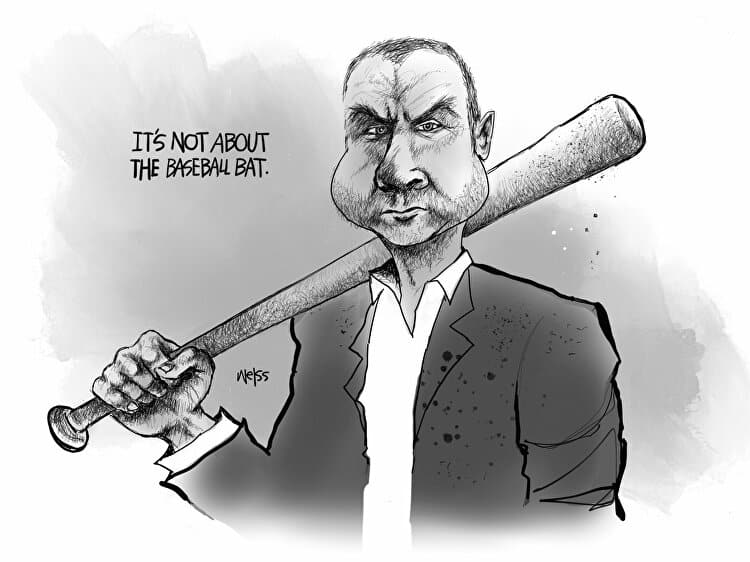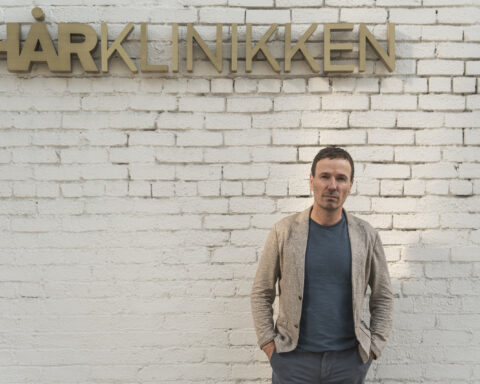Hunkered down at home during this infernal pandemic, I had great plans. I was going to write more, create new artwork, and work out religiously.
Instead, I binge-watched the entire Ray Donovan TV series.
I know, I know. I’m embarrassed to admit it. Sure, I managed to get some creative work done, and exercised a bit. But once you’re hooked on a TV series, you have to follow it through.
“Sometimes I look around my living room, and the most real thing in the room is the television. It’s bright and vivid, and the rest of my life looks drab. So I turn the damn thing off. That does it every time. Get my life back.” –Michael Crichton
Actor Liev Schreiber portrays Ray Donovan, a professional ‘fixer’ for the rich and famous in Los Angeles. He’s a big guy with a troubled past. He has a knack for helping people get out of trouble, but he’s not so talented at fixing his own family troubles.
Donovan may be tall and well built, but that’s not what makes him so charismatic and memorable. Rather, it’s his laconic demeanor. In other words, he’s a man of few words.
Watch this short, humorous clip from Ray Donovan titled, ‘The Way Ray Attends A Meeting.’
THE SPACE BETWEEN THE WORDS
We live in a noisy time of flickering screens, ubiquitous smartphones, and everyone trying to get noticed on social media. Ask someone what they do for a living, and you’ll likely get a long dissertation. Because people like to talk about themselves.
Watch any TV news program, and you’ll see people shouting and interrupting one another endlessly. The goal isn’t to listen, it’s to drown out the other person.
This is what makes the character of Ray Donovan so appealing. He’s a man of action, not of talk. When he does talk, he’s succinct and straight to the point. It’s refreshing in these noisy times of endless chatter.
“The more you say, the less people remember.” -Francois Fenelon
There’s a scene in Ray Donovan where he sees a psychiatrist named Dr Arthur Amiot, played by Alan Alda. Dr Amiot observes Donovan’s silence and abrupt conversational style.
Dr Amiot mentions his late wife, saying she was a music teacher who would have liked Donovan. She would have liked “the space between the words.”
It’s the space between musical notes that sets the pace and mood of a song, just as the space between our words sets the mood of a conversation.
If we spew an endless stream of words, never coming up for air, we lose impact. There’s nowhere for the listener to rest between the words, and consider what we’ve said.
In conversation, what kind of mood do you want to create? How do you wish to come across? Wordy and insecure or succinct and confident?
PEOPLE WHO TALK TOO MUCH ARE TIRESOME
My father suffered a heart attack when I was 13 years old. He was an administrative law judge who handled multi-million dollar cases involving complex water rights and land use issues.
Dad was also a Type-A personality, which means he was impatient and driven. Part of his recovery after the heart attack was learning to relax and better control his Type-A nature.
Dad learned that people are often less interested in what you have to say than you think. He suggested the following test.
Next time you’re telling a story to a group of people, excuse yourself mid-story to use the restroom. When you return, wait, and see if anyone asks you to resume your story. If not, learn to let it go.
“People who talk too much are tiresome, especially those who are not informative, thought-provoking, or funny.” -Mokokoma Mokhonoana
People who talk too much tend to get ignored. Others grow tired of their endless chatter. In contrast, the person who speaks less often has more impact when he/she does speak. Brevity invites interest.

Additionally, the space between your words matters a great deal. Listen to a great speaker, and you’ll notice the power of the pause. Strategic pauses help let ideas sink in, or serve as transitions.
Of course, you don’t want to become monotone and robotic. There’s a place for enthusiasm and energy in speaking.
Still, pausing before you speak, and at various points in your oral communication, will make you appear more self-assured and confident. As a result, people will be more likely to pay attention to you.
A FISH WITH HIS MOUTH CLOSED
When I was a young police detective, I attended an interview and interrogation school. One of the most powerful tools I learned to use was silence.
In police interviews, I would ask a pointed question, and then remain silent. Even after the suspect answered, I’d simply gaze at the suspect, and maybe nod.
People hate silence. There’s a certain flow to most conversations, and empty space feels uncomfortable.

People often respond to silence by volunteering information. Sometimes the information was incriminating.
A fish with his mouth closed never gets caught.” -Fuad Alakbarov
Ray Donovan’s character uses silence to great effect. He creates tension and anticipation. People end up talking more to fill the void. As a result, Donovan often learns more information.
WE HAVE TWO EARS AND ONE MOUTH
There’s nothing wrong with being a talkative person, and sometimes being too quiet means you may go unnoticed. There are situations in life where you better speak up.
But on balance, strategic use of silence can serve you well in this noisy world. If you want people to pay attention to you as they do to Ray Donovan, here are three tips.
Beware your ego
We’ve all got egos, and we want people to see how brilliant we are. But showering people with facts or waxing poetic about a topic can veer from interesting to boring quickly.

I knew a guy who liked to ask people questions he already knew the answer to. He’d get all the facts beforehand, ask the question, and then when people answered incorrectly he’d hold court. Talk about fluffing one’s ego.
Just because you know the answer or have more information doesn’t mean you have to volunteer it. Sometimes it’s better to sit on what you know and find out how much or little others know.
Listen and learn
Ray Donovan’s character listens well to others. He picks up on what they’re saying, and not saying, because he keeps his mouth shut. You learn more when you listen.
“We have two ears and one mouth so that we can listen twice as much as we speak.” -Epictetus
Reveal less
By speaking less, you reveal less. It’s easy to slip if you’re a talker and say things you might regret or should not have shared. The less you say, the less can be used against you.
Ray Donovan may be a television character, but his laconic nature and reserved style show us the power of “the space between the words.”
Try it yourself. Become more discriminating with when and what you have to say. Practice expressing yourself with fewer words. Beware your ego, listen and learn, and reveal less when you speak.
You may not become a Hollywood fixer like Ray Donovan, but you will stand out against all the verbosity and noise. People will pick up on your brevity and eloquence, and as a result, want to know more about you and what you have to say.
Read more from John P Weiss at johnpweiss.com











